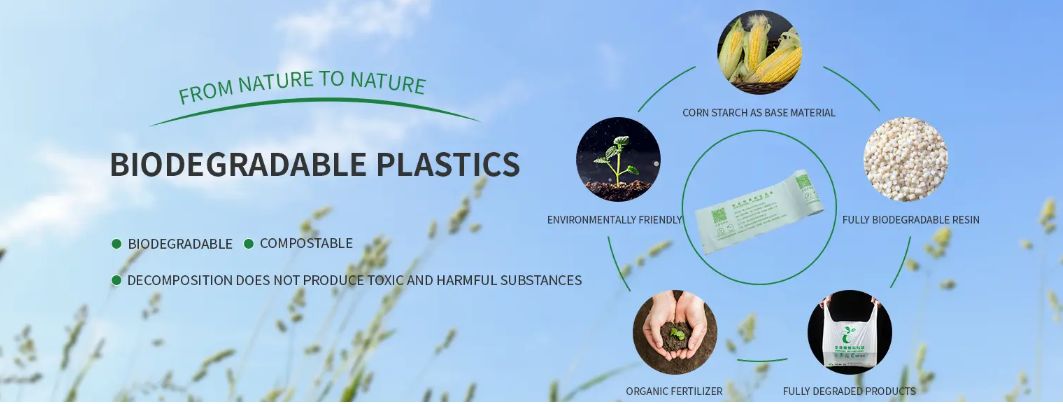Compostable trash bags made from PBAT+PLA+Starch, that can be degraded and compostable under the composting conditions. They offer several benefits:
1. Environmentally friendly: Compostable trash bags are made from natural materials such as cornstarch, vegetable oils, and plant starches, and they break down quickly in composting systems. They are a sustainable alternative to traditional plastic bags that take hundreds of years to decompose.
2. Reduced waste: Compostable trash bags help to reduce the amount of waste that ends up in landfills, as they can be used to collect organic waste such as food scraps and composted alongside the waste.
3. Better for soil health: When compostable bags break down, they release beneficial nutrients into the soil, improving soil health and reducing the need for chemical fertilizers.
4. Reduced greenhouse gas emissions: By reducing the amount of waste that ends up in landfills, compostable bags can help to reduce greenhouse gas emissions, which are produced when organic waste breaks down in landfills.
5. Versatile: Compostable bags can be used for a variety of purposes, including collecting organic waste, storing food, and for general purpose trash. They are also available in a range of sizes and strengths to suit different needs.
Compostable bags are designed to break down in composting facilities, so the best way to treat rubbish packed in compostable bags is to place them in a composting bin or facility. Do not put them in regular trash as they will not break down properly and can contaminate the environment. If you do not have access to a composting facility, you can dispose of the bag in your regular trash, but be aware that it may not break down properly and will still contribute to landfill waste.
Here are some actions that the government could take to encourage the use of compostable trash bags:
1. Provide education and awareness campaigns on the benefits of compostable bags and how to properly dispose of them.
2. Provide incentives for households and businesses to switch to compostable bags, such as tax credits or rebates.
3. Ban the use of traditional plastic bags by imposing a levy or ban on single-use plastic bags.
4. Work with manufacturers to improve the availability and affordability of compostable bags.
5. Increase funding for research and development of compostable bag technology.
6. Collaborate with municipalities to invest in infrastructure such as composting facilities to accommodate the increased use of compostable bags.
7. Encourage greater consumer awareness and offer guidance on how to properly dispose of compostable bags through effective communication channels such as public service announcements and educational campaigns.
WorldChamp’s biodegradable and compostable trash bags are eco friendly, no harm to earth, easy to handle the dog waist during the out walking with your lovely friends.
Post time: Mar-28-2023





